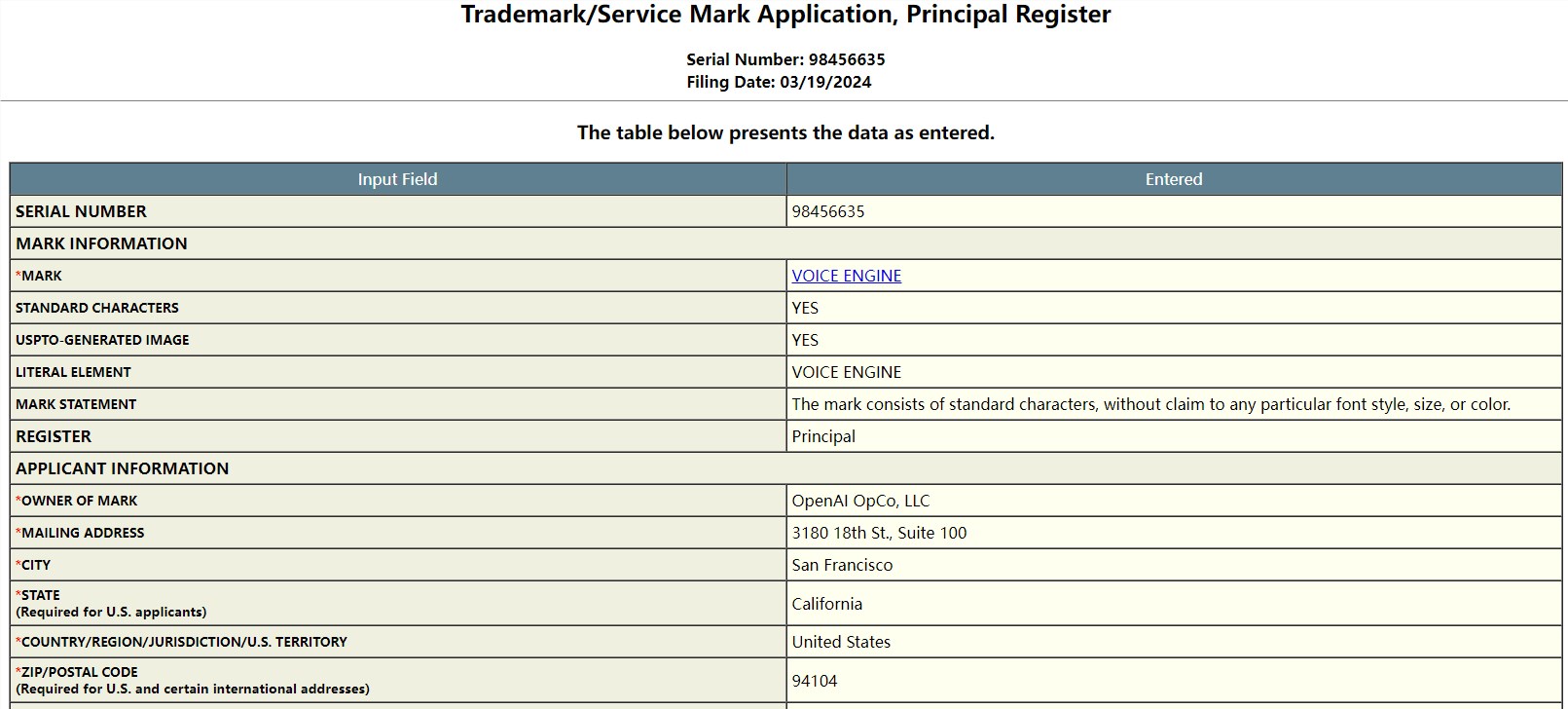In a bold move, the developers of ChatGPTOpenAIhas been submitted for a tool called Voice Engine.trademarkapplication, which indicates the potential number ofVoice AssistantThe market landscape could change. This strategic move could make OpenAI a strong competitor to tech giants such as Apple, Amazon and Google, which already dominate the market.

OpenAI's foray into voice technology with the launch of its "Voice Engine" signals that it is focusing on extending its strengths in artificial intelligence into the realm of digital voice assistants. The trademark application, filed with the U.S. Patent and Trademark Office, outlines a suite of voice-related technologies, including software, that highlights OpenAI's ambitious plans to innovate beyond its current capabilities.
The technology suite includes software for creating digital voice assistants, processing voice commands, generating audio from text prompts, and supporting multilingual speech recognition and translation. These technological advances build on OpenAI's existing technologies, including the Text-to-Speech API and the Whisper speech recognition model, and mark a significant step towards delivering a fully integrated virtual voice assistant to consumers.
The launch of the "Read Aloud" feature in ChatGPT, which allows responses to be expressed in 37 languages, underscores OpenAI's commitment to improving user interaction via voice. Unlike Whisper's focus on understanding and responding to speech, this feature combines written and verbal communication to provide a more comprehensive and user-friendly experience. This development is particularly suited to users who need to work on multiple tasks at once or prefer auditory learning.
OpenAI CEO Sam Altman has hinted at "a lot of different things" coming this year, and speculation is rife about Sora (an AI video tool) and possibly a new AI voice system. While specifics about the "Voice Engine" or its productization are unclear, OpenAI's trademark filing gives a good indication of its intentions. In addition to consumer applications, "Voice Engine" could also mean a race to the bottom for enterprises, enabling companies to improve call center efficiency through advanced voice systems.
OpenAI's entry into the digital voice assistant market hasn't been easy. The company has encountered regulatory hurdles such as the rejection of the "GPT" trademark, but it continues to work on obtaining trademarks for future versions such as GPT-5, GPT-6 and GPT-7. With the release of GPT-5 expected this summer, OpenAI remains at the forefront of AI innovation.
By filing a trademark application for "Voice Engine," OpenAI is not only expanding its technology ecosystem, it is also envisioning a future in which artificially intelligent assistants will become more integral to everyday life. By utilizing voice as the primary method of interaction, OpenAI aims to facilitate seamless communication and bridge the gap between human intent and machine understanding.